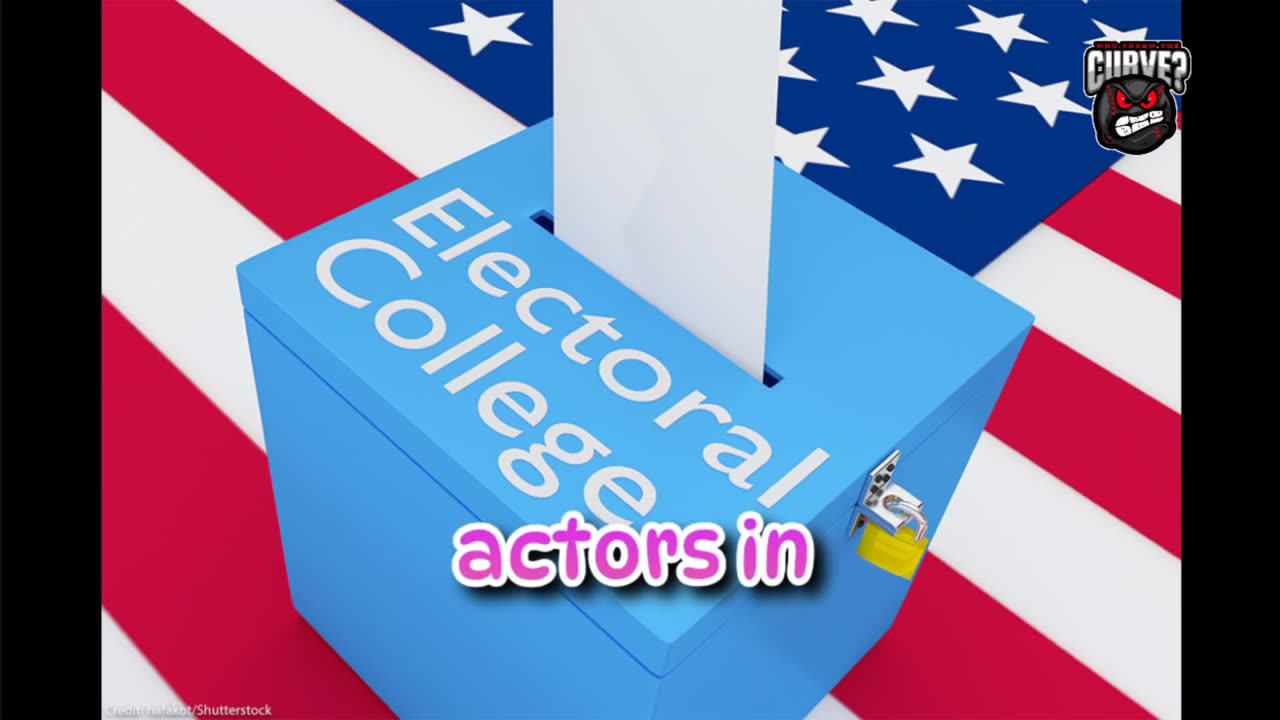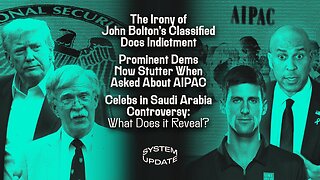Premium Only Content

Electoral College Reform: Saving Federalism or Killing It?
#ElectoralCollegeExplained #FederalismDebate #USPolitics #ConstitutionalCrisis #PoliticalReform #CivicEducation #DemocracyInDanger #StateVsNation #politics
The debate over reforming the Electoral College pivots on whether changes will bolster or erode the federal structure at the heart of American government. Proponents of the status quo argue that the system was deliberately designed to balance state and popular interests, ensuring that smaller states retain meaningful influence in presidential elections. Critics counter that modern realities, demographic shifts, winner-take-all allocations, and occasional mismatches between the popular vote and Electoral College outcomes, undermine democratic legitimacy. Any reform must therefore be judged by its impact on the constitutional equilibrium between national majorities and state sovereignty.
The original design of the Electoral College embeds federalism by allocating each state as many electors as it has representatives in Congress. This arrangement compelled presidential candidates to seek support beyond population centers, giving rural and less populous states real bargaining power on the national stage. By vesting state legislatures with authority to determine elector selection methods, the framers guaranteed that states would remain independent actors in the election process. That safeguard against tyranny of the majority persists in today’s system, preserving a union of semi-sovereign entities rather than a purely centralized nation-wide vote.
Calls to abolish the Electoral College in favor of a direct national popular vote exemplify a shift toward majoritarianism that risks marginalizing state authority. The National Popular Vote Compact, for instance, bypasses the constitutional amendment process by binding member states to award electors to the national popular vote winner. While it promises to prevent “wrong winner” scenarios, it simultaneously concentrates power in densely populated regions and dilutes the bargaining power of smaller states. Such sub-constitutional reform threatens the delicate balance the framers struck between federal and popular rule, potentially sparking constitutional crises when compact-member states diverge on enforcement or interpretation.
Not all reforms undermine federalism, however. Proposals to replace winner-take-all with congressional district allocation of electors continue to vest election procedures in state hands while fostering intra-state representation. Historically, states experimented with district-based elector selection throughout the nineteenth century, reflecting a diversity of federalist practices. By allowing states to tailor allocation methods, whether winner-take-all, district-based, or proportional, reform can enhance voter engagement in every region without eliminating the state’s role as an election authority. This preserves the decentralized spirit of the Constitution even as it modernizes electoral mechanics.
Ultimately, electoral college reform can either reinforce or weaken federalism depending on its design. Wholesale adoption of the national popular vote eclipses state discretion, centralizing authority and diminishing the federal character of presidential elections. In contrast, state-driven innovations, like district allocations or proportional schemes, can invigorate voter participation while maintaining the constitutional framework of shared sovereignty. Strengthening federalism requires reforms that respect the states’ prerogatives rather than bypassing them.
-
 LIVE
LIVE
TimcastIRL
2 hours agoTrump Admin CATCHES Illegal Immigrant POLICE OFFICER, Democrats ARM Illegal In Chicago | Timcast IRL
25,711 watching -
 3:36:25
3:36:25
The Charlie Kirk Show
3 hours agoTHOUGHTCRIME Ep. 101 The New York City Communist Debate? MAGA vs Mamdani? Medal of Freedom Reactions
101K27 -
 LIVE
LIVE
Barry Cunningham
3 hours agoKINDA BREAKING NEWS! JOHN BOLTON HAS BEEN INDICTED! WHO'S NEXT!
2,778 watching -
 LIVE
LIVE
Flyover Conservatives
20 hours agoSatan’s Agenda vs. God’s Timeline: Witchcraft, Israel, and the Assassination of Charlie Kirk w/ Robin D. Bullock and Amanda Grace | FOC Show
1,757 watching -
 1:22:51
1:22:51
Glenn Greenwald
5 hours agoThe Irony of John Bolton's Classified Docs Indictment; Prominent Dems Now Stutter When Asked About AIPAC; Celebs in Saudi Arabia Controversy: What Does it Reveal? | SYSTEM UPDATE #532
52.6K25 -
 LIVE
LIVE
SpartakusLIVE
2 hours agoNEW Mode - ZOMBIES || LAST Stream from CREATOR HOUSE
628 watching -
 LIVE
LIVE
a12cat34dog
2 hours agoTRIPPIN' INTO THE UNKNOWN :: The Evil Within 2 :: SPOOKTOBER CONTINUES {18+}
145 watching -
 39:25
39:25
Donald Trump Jr.
4 hours agoFBI's Incredible Crime Crackdown, Plus my Message to ABC!! | TRIGGERED Ep.283
107K95 -
 LIVE
LIVE
OhHiMark1776
5 hours ago🟠 10-16-25 ||||| Act 3 Continue ||||| Baldur's Gate 3 (2023)
61 watching -
 5:28:43
5:28:43
The Rabble Wrangler
19 hours agoBattlefield 6 with The Best in the West
10.3K1